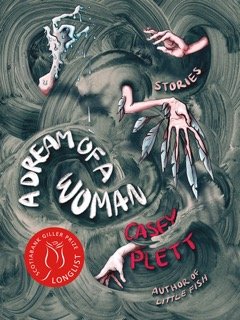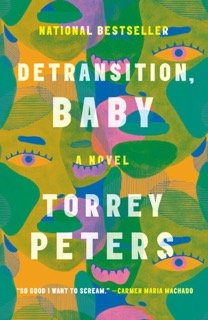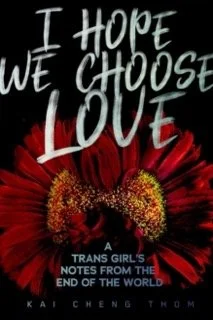Hello, hi, heyo,
It’s been a while.
I took a lot of time off from this site, but I’m still here, sort of.
2021 was a strange year (for lots of reasons) but especially for my reading habits. I went through bursts of reading, and then long periods of not reading, at least not books. The books I did read fell into a different category than what I’m traditionally accustomed to. There was a majority of non-fiction, but the fiction I did read really captivated me.
The books I read essentially fall into 3 categories with a few falling into multiple categories:
- Science based books about drugs and consciousness
- Literature by trans and non-binary authors
- "Self-help" books about understanding oneself and relationships
Books
- We Will Not Cancel Us - adrienne maree brown
- Emergent Strategy - adrienne maree brown
- All About Love - bell hooks*
- Detransition Baby - Torrey Peters
- Dream of a Woman - Casey Plett
- Little Fish - Casey Plett
- This is Your Mind on Plants - Michael Pollan
- DMT: the Spirit Molecule - Rick Strassman
- Fierce Femmes and Notorious Liars - Kai Cheng Thom
- I Hope We Choose Love - Kai Cheng Thom
- Beyond the Gender Binary - Alok Vaid-Menon
Workbooks & PDFs
- Boundaries 101: Beginners Guide to Ethical Non-Monogamy & Consensual Alternative Relationship Structures - Sam Cat (AKA Shrimpteeth)
- Mastering BAES: Intermediate Guide to Boundaries, Agreements, Expectations and Support for Polyamory & Ethical Non-Monogamy - Sam Cat (AKA Shrimpteeth)
- The Dialectical Behaviour Therapy Workbook - Matthew McKay
I thoroughly enjoyed all the books on this list, probably because I didn't include books that I may have read the first parts of and then discarded due to a lack of interest.
The standouts were definitely both books by Casey Plett; Detransition Baby; and I Hope We Choose Love. They were all written by trans women and really resonated with me at the time of reading.
Both Dream of a Woman and Little Fish had me hooked because they're both set or partially set in Winnipeg / Manitoba and include scenes describing my current and former neighbourhoods. Both describe the experiences of trans women that parallel some of my own personal experiences (including specific medical providers). Plett's writing captures elements of the trans experience, such as the internal dialogue and contradictions that only a trans person could really understand and articulate.
I also had the pleasure of seeing Casey Plett read a section of Dream of a Woman at McNally Robinson here in Winnipeg back in October. This experience felt somewhat surreal. I realized that I existed within some of the spaces she describes at the time they take place during the book (Cousin's and the Good Will) and made me wonder how I hadn't met any of her characters. A friend later pointed out that I probably had indeed crossed paths with the real life people Plett had drawn inspiration from.
Detransition Baby was notably for some of the same reason's as Plett's work. Not because of relatable geography, Detransition Baby takes place in NYC, but rather because of the trans experience described within its pages. Peters isn't shy to tackle topics that are often considered taboo in trans discourse. The topic of detransition being the most obvious as it's right there in the title, and if I'm being honest was an initial source of hesitation for me. The topic of detransition is often used by Terfs and anti-trans bigots to invalidate trans people's existence, and as a result the word has become something of a trigger. But Peters expertly reclaims the word and gives the process and experience of detransition the nuanced approach that it deserves.
Peters also tackles the topic of queer parenting and forces readers to question preconceived notions of gender roles and monogamy within parental units.
Finally, Kai Cheng Thom's I Hope We Choose Love came to me at a time I really needed it, when I was becoming disillusioned with “Left” discourse and online social justice movements. Her critiques of contemporary movements both validated my own frustrations and also allowed me to re-evaluate my knee-jerk reactions and embrace a more empathetic approach to my own relationships. Kai Cheng Thom’s work was and continues to be a catalyst for deeper conversations with close friends. I find myself continually returning to her text and look forward to reading more from her.
*This is still in progress, because I keep putting it aside to contemplate what I've read so far before continuing to read the rest.


